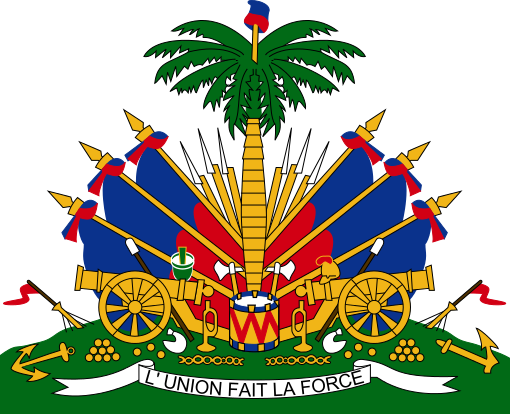I am not Haitian. I do not live in Haiti. But I did… for a year. I also have a master’s degree in Sustainable International Development. This does not make me an expert, but I do have knowledge; Knowledge that needs to be shared.
Living in Haiti for a year, I saw many good-hearted people trying to help, but actually causing more problems. Yes, “helping” can hurt. I get it. I’ve done it. It’s our instinct to want to help, and that’s good. It’s great, actually, but it’s our duty to make sure we are doing it right. For that reason, I wanted to make sure that people weren’t continuing to do things that were hurting and were being misled by a published news source.
First of all, The Red Cross. Do not donate to them. There have been scandals with the Red Cross after Hurricane Katrina, September 11th, AND the Earthquake in Haiti. Fool me once, shame on you, fool me twice, shame on me, fool me three times… By the way, your own newspaper wrote an article titled “Red Cross Built Exactly 6 Homes For Haiti With Nearly Half A Billion Dollars In Donations” and now your first recommendation is to donate to them….?
As far as medical relief goes, it is important, especially after disasters. However, believe it or not, there are actually Haitian hospitals and Haitian doctors. Partnering with them in any way possible to build their capacity and infrastructure is the best way possible.
My husband and I lived a few houses down from the Doctors without Borders hospital in Léogâne, Haiti. It was built after the earthquake. However, we moved there in 2014 and the earthquake happened in 2010. The local hospitals were forced to downsize their services due to revenue losses resulting from the free services offered by Doctors without Borders. One of the pediatricians had to become a chicken farmer in order to make a living. Then, in 2014 Doctors without Borders started to phase out their services in order to leave in 2015. They stopped giving free care. The local hospital had to take back the patients who had left who not only wanted care, but free care because that’s what they had become used to. In the book Toxic Charity, Robert Lupton says, “When relief does not transition to development in a timely way, compassion becomes toxic.” This is a perfect example.
It’s also an instinct of compassion to want to donate goods. Please don’t. Buy local whenever possible. Donating goods from outside depletes the possibility of a local selling the same goods in-country. There is a missed opportunity to help the local economy and you can actually hurt it. In 2008 there was a huge crisis in Haiti due to the United States dumping rice into the Haitian economy. The U.S. exported so much rice to Haiti that many Haitian rice farmers went out of business. Then, when the economy changed, the price of rice rose couldn’t afford foreign rice, but there was not enough local rice and people began to starve.
These are just a couple examples in a long history of foreigners interfering in Haiti. Haitians have been hurt over and over again by outsiders. Let’s get it right this time.
So what SHOULD you do?
• Partner with local, on the ground organizations that have relationships with the people and/or organizations that are following these rules.
• Do research- on development best practices, the organization you want to give to, and the history of the country you’re giving to to understand how best to help, talk to people from that country
• Do help with water and sanitation
• Do help with projects that are sustainable (that will last and can keep going without outside help)
• Do partner with Haitians
• Do buy locally whenever possible (The entire country was not affected by the earthquake, so if you can buy local, do it.)
• Empower parents; Don’t send kids to orphanages because of the hurricane
Good books to read are
• Toxic Charity by Robert Lupton
• When Helping Hurts by Steve Corbett and Brian Fikkert
Thank you for taking the time to read this and for your desire to help,
Michelle Roose
Bibliography
Justin Elliott and Laura Sullivan (2015). Red Cross Built Exactly 6 Homes For Haiti With Nearly Half A Billion Dollars In Donations. ProPublica. Retrieved from: http://www.huffingtonpost.com/2015/06/04/red-cross-haiti-report_n_751108...
Lupton, Robert D. (2011) Toxic Charity: How Churches and Charities Hurt Those They Help,
And How to Reverse It, New York: HarperCollins.
O'Connor, M. R. (January 11, 2013). Subsidizing Starvation: How American tax dollars are keeping Arkansas rice growers fat on the farm and starving millions of Haitians. Foreign Policy.
Sarah Ruiz-Grossman (October 07, 2016). How To Help Haiti Recover From Hurricane Matthew. Huffington Post. Retrieved from http://www.huffingtonpost.com/entry/how-to-help-haiti-hurricane-matthew_...
Walden, Ricard M. (2005). The Red Cross Money Pit. Los Angeles Times.http://articles.latimes.com/2005/sep/25/opinion/op-redcross25
















